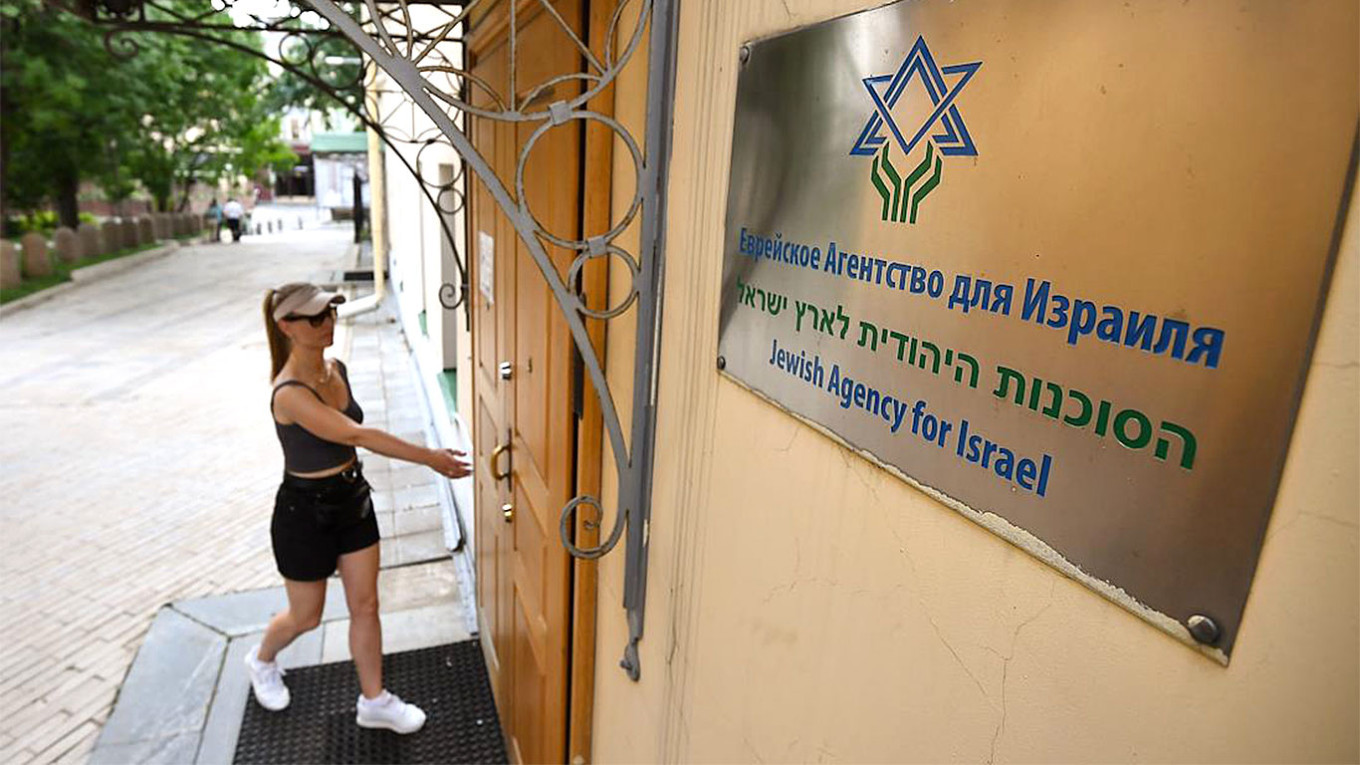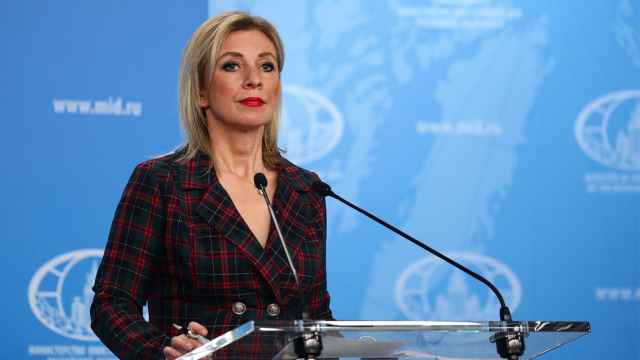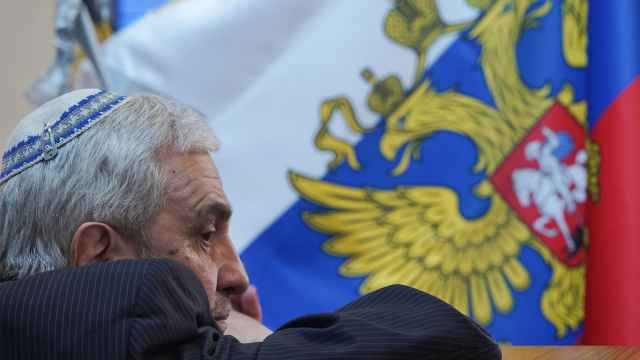A Russian crackdown on the agency that processes the immigration of Jews to Israel is a response to new Israeli Prime Minister Yair Lapid's tougher stance on Russia's invasion of Ukraine, analysts said Friday.
On Thursday, a Moscow court said the Justice Ministry had requested the "dissolution" of the Jewish Agency over unspecified legal violations and set a hearing for July 28.
Lapid vowed to act through "diplomatic channels" to ensure the semi-governmental agency's continued operation, with an Israeli delegation to visit Moscow next week to discuss the matter and underline the close links between the Russian Jewish community and Israel.
Other government ministers were less diplomatic, with Diaspora Affairs Minister Nachman Shai accusing Moscow of punitive action over Israel's stance on the war in Ukraine.
"Russian Jews will not be held hostage by the war in Ukraine," he tweeted on Thursday.
"The attempt to punish the Jewish Agency for Israel's stance on the war is deplorable and offensive. The Jews of Russia cannot be detached from their historical and emotional connection to the State of Israel."
Ties between Russia and Israel have deteriorated since Russia invaded Ukraine on Feb. 24, a move condemned by the Israeli government.
Israel underlined its good relations with both countries but Lapid, who was foreign minister at the time before his elevation to the premiership on July 1, said Russia had committed "a grave violation of the international order."
And just last week, during a visit by U.S. President Joe Biden, Lapid condemned "Russia's unjustified invasion of Ukraine," saying that "in order to protect freedom, sometimes force must be used."
Warning to Lapid
To Ksenia Svetlova, a senior fellow at the Atlantic Council, while the Russian move is part of a wider move against foreign and civil society organizations that began before the Ukraine invasion, it is also a clear warning to Lapid.
"It's a move not just against the Jewish Agency and Jewish community, but against the prime minister of Israel," said Svetlova, who herself immigrated to Israel from Moscow as a teenager.
According to Svetlova, a former member of the Israeli parliament who is director of the Israel-Mideast program of the Mitvim think tank, the Russian move could also be an attempt to strengthen former prime minister Benjamin Netanyahu ahead of a Nov. 1 general election.
"It could be a move to rein him in now – prevent him from selling arms to Ukraine or providing other support – but also a gesture to the person who is constantly attacking the current Israeli premier, and wants to replace him – Netanyahu."
Last month, Ukrainian President Volodymyr Zelensky criticized Israel for not imposing sanctions on Russia.
But as former Israeli ambassador to the United States Michael Oren pointed out, "we're not letting anyone violate the sanctions from our territory."
"Israel is not entirely neutral anymore on Ukraine," he said, noting the helmets, flak jackets and other humanitarian aid the Jewish state has been supplying.
To Oren, who was a deputy minister in the prime minister's office, the Russian move against the Jewish Agency was less about immigration and more about Middle East geopolitics.
"The major issue is not the Jewish Agency programs but of our ability to maneuver freely in Syria, and Russia threatens to do something against us in Syria all the time," he said.
But given that Russia has no interest in clashing with Israel in Syria, "this is an easier way of expressing displeasure, on the Jewish Agency programs," he said.
According to Svetlova, Israel's ties with Moscow have been about protecting Russian Jewry, while preventing arms sales to Iran.
The isolation facing Russia pushed it towards Iran, with the recent visits by Biden to Israel and by President Vladimir Putin to Tehran illustrating the new reality.
"It’s not clear if Israel can obtain those goals, because the camps in the Middle East have become clear – who against who," she said.
A Message from The Moscow Times:
Dear readers,
We are facing unprecedented challenges. Russia's Prosecutor General's Office has designated The Moscow Times as an "undesirable" organization, criminalizing our work and putting our staff at risk of prosecution. This follows our earlier unjust labeling as a "foreign agent."
These actions are direct attempts to silence independent journalism in Russia. The authorities claim our work "discredits the decisions of the Russian leadership." We see things differently: we strive to provide accurate, unbiased reporting on Russia.
We, the journalists of The Moscow Times, refuse to be silenced. But to continue our work, we need your help.
Your support, no matter how small, makes a world of difference. If you can, please support us monthly starting from just $2. It's quick to set up, and every contribution makes a significant impact.
By supporting The Moscow Times, you're defending open, independent journalism in the face of repression. Thank you for standing with us.
Remind me later.






